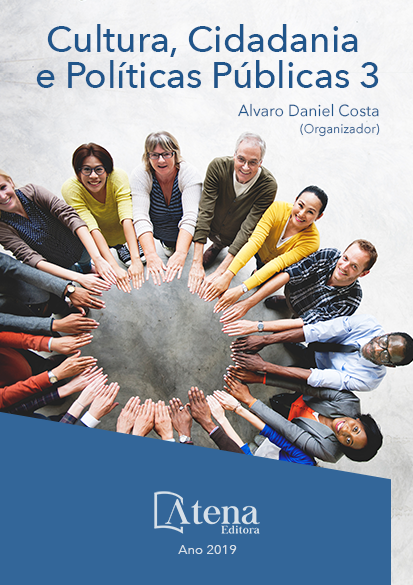
MARCOS HISTÓRICOS DA EDUCAÇÃO DE JOVENS E ADULTOS NO BRASIL: O DELINEAMENTO DESTA TRAJETÓRIA
O presente artigo está centrado em
analisar a trajetória da Educação de Jovens e
Adultos (EJA), em especial o que ocorreu no
período anterior à ditadura militar (1940-1960).
Destacar-se-á, assim, os principais marcos
desta conjuntura histórica que perpassa por
práticas formais e informais de escolarização
de jovens e adultos num o período que vai do
império à república, demarcações primordiais
para se compreender a atual configuração da
EJA. Para tal, não se alargará para os períodos
posteriores, devido à influência do período
militar, que extinguiu as campanhas e os
movimentos, como também pela amplitude que
é historiar um universo tão plural que persiste
nos dias de hoje na educação de jovens e
adultos. Deste modo, ao longo do estudo,
enfatizarei sobre a trajetória da educação de
jovens e adultos, tendo em vista que a realidade
social, política, econômica, educacional e
cultural do país influenciou nesta concepção.
Em seguida, abordo sobre os Programas de
Alfabetização instituídos no Brasil (1959-1964).
Por fim, através deste estudo bibliográfico
de análise dos marcos históricos da EJA no
período entre 1940-1960, pode-se detectar
a influência do cenário político-econômico
na forma como se foi configurando a EJA.
Uma educação estritamente vinculada aos
processos econômicos do país, cujo modelo
desenvolvimentista estava relacionado ao
economicismo.
MARCOS HISTÓRICOS DA EDUCAÇÃO DE JOVENS E ADULTOS NO BRASIL: O DELINEAMENTO DESTA TRAJETÓRIA
-
DOI: 10.22533/at.ed.7971925011
-
Palavras-chave: EJA; Trajetória; Alfabetização.
-
Keywords: EJA; Trajectory; Literacy
-
Abstract:
The present article focuses on
analyzing the trajectory of Youth and Adult
Education (EJA), especially what occurred in
the period before the military dictatorship (1940-
1960). It will highlight the main milestones of this
historical context that goes through formal and
informal practices of schooling of young people
and adults in a period ranging from empire to
republic, demarcations primordial to understand
the current configuration of the EJA. To this
end, it will not be extended to later periods, due
to the influence of the military period, which
extinguished campaigns and movements, as
well as the breadth of history of a universe so
plural that persists today in the education of
young people and adults. Thus, throughout the
study, I will emphasize the trajectory of youth
and adult education, since the social, political,
economic, educational and cultural reality of
the country has influenced this conception.
Next, I address the Literacy Programs instituted
in Brazil (1959-1964). Finally, through this
bibliographic study of analysis of the historical
landmarks of the EJA in the period between 1940-1960, one can detect the influence
of the political-economic scenario in the way the EJA was configured. An education
strictly linked to the economic processes of the country, whose developmental model
was related to economism.
-
Número de páginas: 15
- Mariane Brito da Costa


